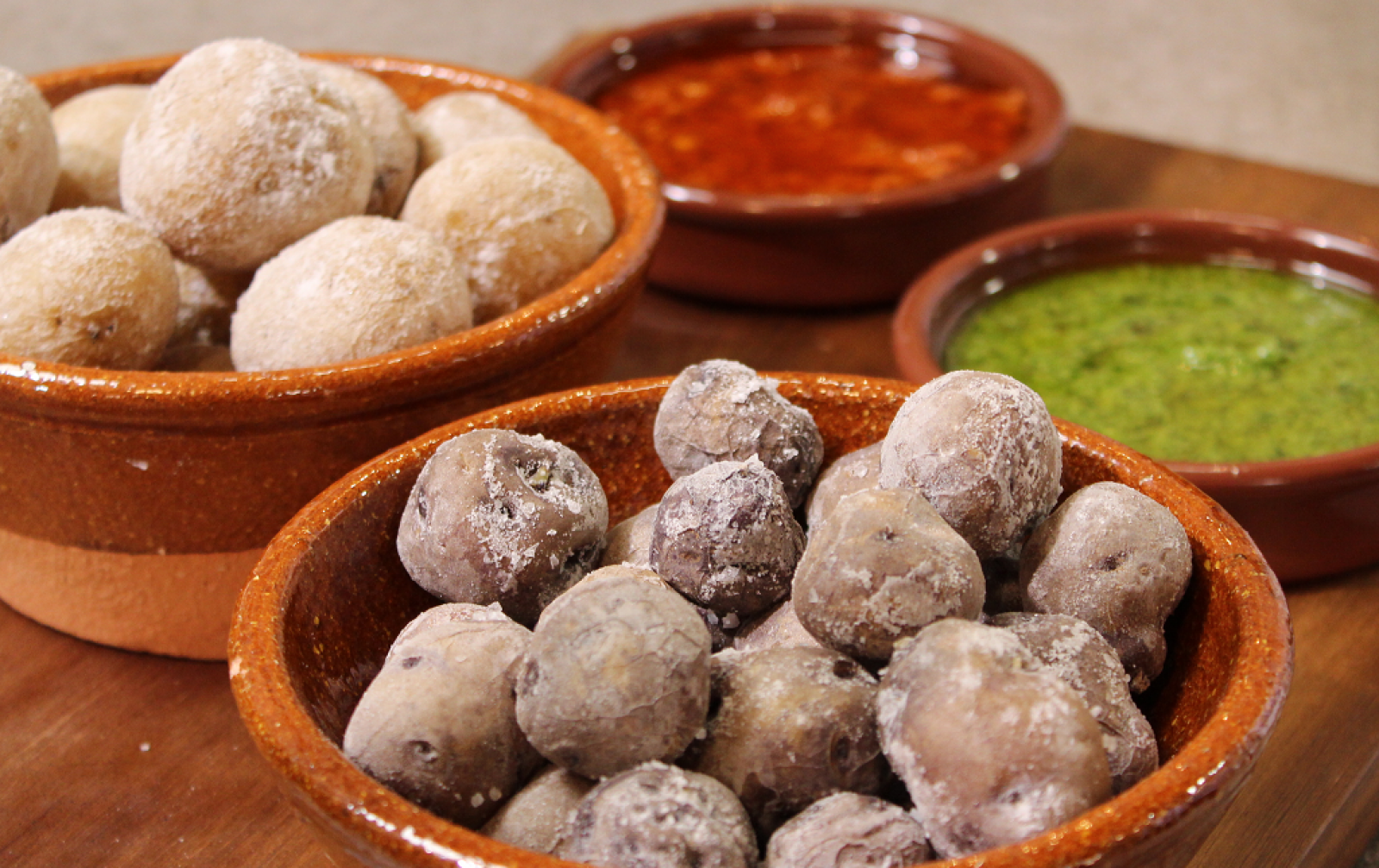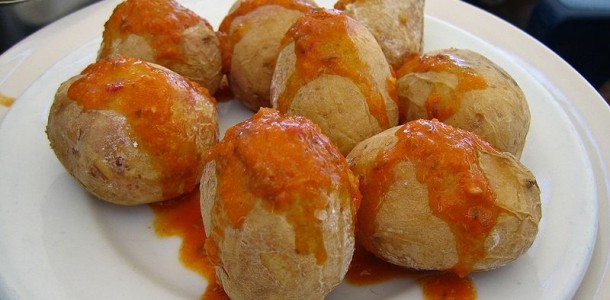When visiting the Canary Islands one must sample the local cuisine. There are similarities with Spanish food, with meat and fish in flavourful sauces and small tapas-like portions; however, the islands do have several uniquely local specialities. Oddly enough, the islands’ signature dish is not some overly complicated display of cooking, but rather a simple potato recipe.

Papas Arrugadas (literally “wrinkly potatoes”) are small, young potatoes that get cleaned (but not peeled), then cooked in saltwater. Traditionally, this was seawater, but now some people use tap water with a very generous amount of salt. The salty environment sucks out most of the water from the potatoes as they boil, shrinking them in size and giving them their signature wrinkly skin. The process also leaves the inside of the potatoes quite dry, imparting a texture more like baked potatoes than boiled ones.
Once the water has evaporated, the potatoes get covered by a thin layer of salt. They’re often served accompanied by an equally traditional and local sauce called mojo. This is made by mixing bell peppers, garlic, various spices, and a generous amount of oil. The potatoes can be eaten as a starter or a side dish. They can be found in almost any restaurant on the island. It is a uniquely a Canarian dish that tastes great despite its seeming simplicity.

There are many ways to "wrinkle" potatoes. This is one of the simplest, most efficient and widely used...
Preparation: Put the unpeeled potatoes in a large, deep pan and fill with enough water to cover them (seawater is even better). For every kilogram of potatoes add a quarter of a kilogram of salt - it doesn't matter if you put in more, as the potatoes absorb only what is necessary. Put the pan on the flame and cover it with a clean cloth or wrapping paper on top of which the lid is placed.
Wait while the potatoes boil for between twenty minutes and half an hour, time enough for them to soften. Then pour away the water and drain the potatoes well. Without taking them out of the pan throw another handful of salt over them and dry them on a low flame while shaking them inside the pot for a short time (usually just under a minute).
The popular sauce to accompany the potatoes, as mentioned, is "mojo". The basis for these sauces tends to be what they call on the islands "pimienta picona" (chilli peppers).
Preparation: Crush half a dozen garlic cloves, half a teaspoon of cumin and a pinch of cooking salt. When this is done, add half a chilli pepper and continue crushing. Next, add a little paprika and then finish by soaking everything in oil and vinegar, approximately 3 parts oil to one part vinegar, until reaching the right consistency. (Before adding the oil, you can put a piece of bread previously marinated in vinegar for a while depending on the tastes of those who are going to eat it).
The famous "mojo picon" (spicy red sauce) is made in more or less the same way, but using La Palma peppers, larger than those used in the rest of the Archipelago. These should be softened before using them by placing them in hot water.